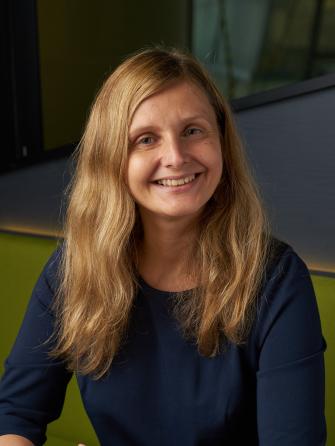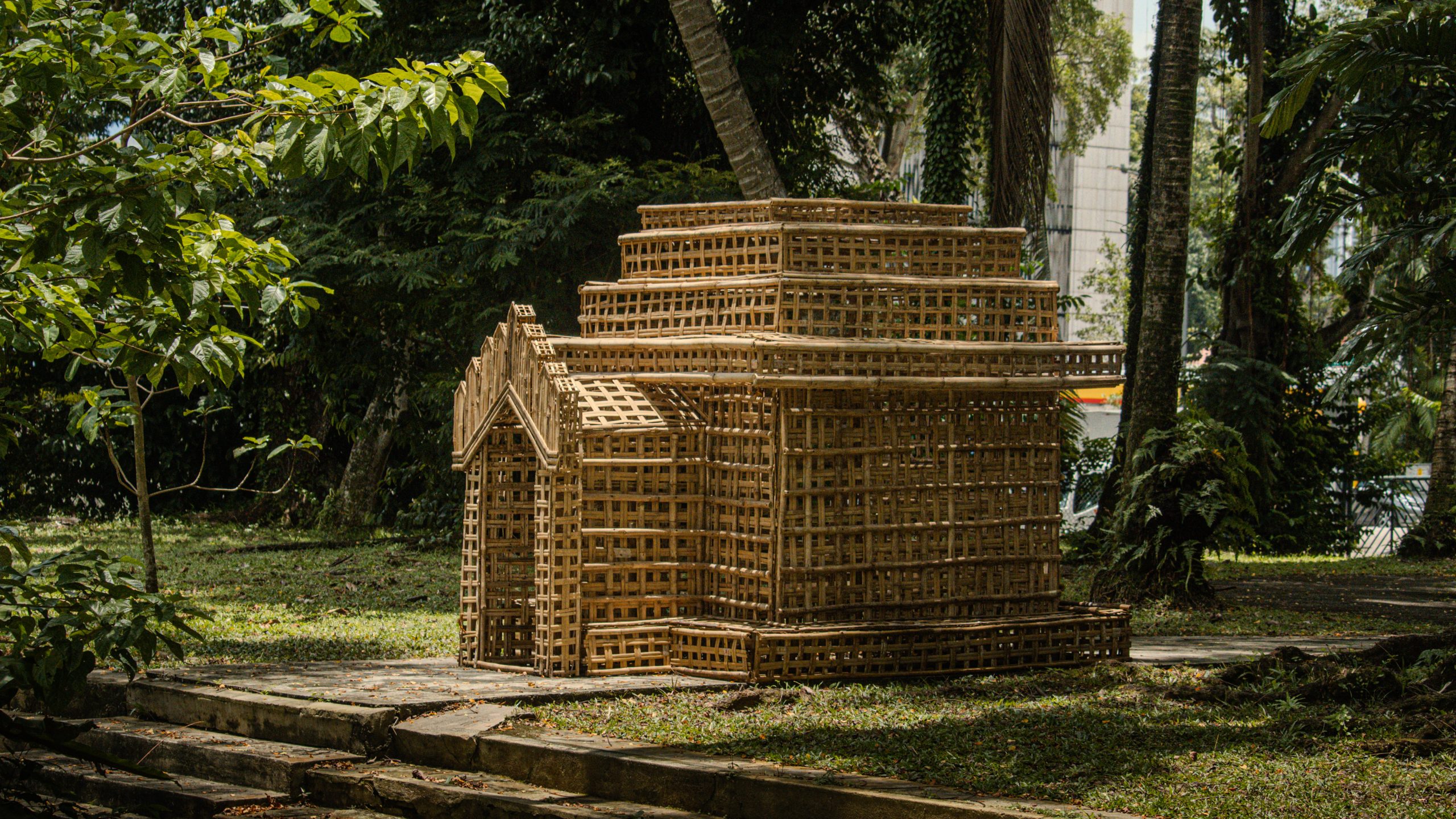Dr Natalia Grincheva

- PhD in Digital Humanities
- MA in Arts Management
Dr Natalia Grincheva is an internationally recognised expert in innovative forms and global trends in contemporary museology, digital diplomacy and international cultural relations. She received many prestigious international academic awards, including Fulbright (2007–2009), Quebec Fund (2011–2013), Australian Endeavour (2012–2013) and SOROS research grant (2013–2014).
Dr Grincheva’s academic career focuses on digital and data cultures, contemporary museology and digital heritage, digital diplomacy and soft power. Her interdisciplinary research pioneered academic scholarship on Digital Museum Diplomacy, a field of academic studies that did not exist a decade ago.
Her leadership in this field is evidenced in three monographs, Geopolitics of Digital Heritage (Cambridge University Press: 2024), Museum Diplomacy in the Digital Age (Routledge: 2020) and Global Trends in Museum Diplomacy (Routledge: 2019). Currently she is working on the new single-author monograph Digital Soft Power of Heritage Media, forthcoming with Cambridge University Press.
Dr Grincheva’s research employs innovative methodologies like digital/data ethnography, cultural/data analytics, dynamic mapping and algorithmic modeling, alongside traditional qualitative inquiry. As the conceptual designer of the Data To Power application, Dr Grincheva facilitates inductive research through data visualisation and interactive storytelling, like in the most recent Hallyu Tracker application, an AI-enabled data visualisation tool designed to map the global dissemination of the Korean Wave over the past three decades.
Dr Grincheva’s professional engagements includes her work for the International Fund for Cultural Diversity at UNESCO (2011) and International Federation of Coalitions for Cultural Diversity (2011–2015), research placement at ACMI X at the Australian Center for the Moving Image (2017–2019) as well as service for the international Cultural Research Network (CRN) (2018–2020) and the International Cultural Relations Research Alliance (2020–present).
Monographs
- Grincheva, N. Digital Soft Power of Heritage Media. Cambridge: Cambridge University Press (forthcoming)
- Grincheva, N. and Stainforth, E. Geopolitics of Digital Heritage. Cambridge: Cambridge University Press (2024)
- Grincheva, N. Museum Diplomacy in the Digital Age. London: Routledge (2020)
- Grincheva, N. Global Trends in Museum Diplomacy. London: Routledge (2019)
Books
- Grincheva, N. and Loh, M. (eds.) Inside Asian Creative Worlds: Digital Heritage, Industry Evolution, and Cultural Roots. Singapore: Pagesetters (forthcoming, 2025)
- Grincheva, N. (ed.) The Future of Heritage. Singapore: Pagesetters (2023). ISBN 978-981-18-7373-7 | DOI: https://dx.doi.org/10.5281/zenodo.8074105
Special issues
- Grincheva, N. and Kelley, J. R. (eds.) Non-Western Non-state Diplomacy. The Hague Journal of Diplomacy, 14 (3) (2019)
Articles
- Grincheva, N. “Searching for Agora at K11: ‘Apolitical’ Spaces of Corporate Diplomacy.” International Journal of Cultural Policy (forthcoming, 2025)
- Grincheva, N. “Towards creative and smart urban sustainability: Understanding smart cultural data intelligence (The Case of Singapore).” Cities (forthcoming, 2025)
- Grincheva, N. “New logics of public diplomacy in the disconnected world.” Place Branding and Public Diplomacy (2024)
- Book review: Boundary Spanners of Humanity: Three Logics of Communications and Public Diplomacy for Global Collaboration by R.S. Zaharna, Oxford: Oxford University Press, 163pp (2022). https://doi.org/10.1057/s41254-024-00353-6
- Grincheva, N. “K11 Alternative Diplomacies: Penetrating the Global Arts Markets.” Journal of Contemporary Chinese Art, 10 (3), pp. 371–88 (2023)
- Grincheva, N. ‘The Past and Future of Cultural Diplomacy’. International Journal of Cultural Policy (2023)
- Grincheva, N. ‘‘Contact Zones’ of Heritage Diplomacy: Transformations of Museums in the (Post)Pandemic Reality’. International Journal of Cultural Policy, 29(1): pp.76–93 (2022)
- Grincheva, N. ‘Beyond the scorecard diplomacy: From soft power rankings to deep mapping explorations’. Convergence, 28(1): pp.70–91 (2022)
- Grincheva, N. ‘City museums in the age of datafication: Could museums be meaningful sites of data practice in smart cities?’ Museum Management and Curatorship, 38(4): pp. 367–393 (2022)
- Grincheva, N. ‘Cultural diplomacy under the “digital lockdown”: Pandemic challenges and opportunities in museum diplomacy’. Place Branding and Public Diplomacy, 18 (1): pp. 8–11 (2021)
- Grincheva, N. ‘Glocal diplomacy of Louvre Abu Dhabi: Museum diplomacy on the cross-roads of local, national and global ambitions.’ Museum Management and Curatorship, 35 (1): pp. 89–105 (2020)
- Grincheva, N. and Kelley, R. ‘Introduction: Non-state Diplomacy from Non-Western Perspectives.’ The Hague Journal of Diplomacy, 14 (3): pp.199–208 (2019)
- Grincheva, N. ‘Beyond ‘State vs Non-state’ Dichotomy: The State Hermitage Museum as a Russian Diplomacy ‘Hybrid’.’ The Hague Journal of Diplomacy, 14 (3): pp.225–249 (2019)
- Grincheva, N. ‘The Form and Content of ‘Digital Spatiality’: Mapping Soft Power of DreamWorks Animation in Asia.’ Asiascape: Digital Asia, 6 (1): pp. 58–83 (2019)
- Grincheva, N. ‘Mapping Museum Soft Power: Adding Geo-visualization to the Methodological Framework.’ Digital Scholarship in the Humanities, 34 (4): pp. 730–751 (2018)
- Grincheva, N. ‘The ‘GuggenTube’ Phenomenon: Breaking the Boundaries of a Digital Museum Space.’ Museum International, 70 (1–2): pp. 166–175 (2018)
- Grincheva, N. ‘Sustainable development in cultural projects: Mistakes and challenges.’ Development in Practice, 26 (2): pp. 236–250 (2016)
- Grincheva, N. and Lu, J. ‘BRICS Summit diplomacy: Constructing national identities through Russian and Chinese media coverage of the Fifth BRICS Summit in Durban, South Africa.’ Global Media and Communication Journal, 12 (1): pp.1–23 (2016)
- Grincheva, N. ‘The World Beach Project Going Viral: Measuring Online Influence (Case study of the Victoria & Albert Online Museum Project).’ Journal of Creative Communications, 10 (1), pp. 39–55 (2015)
- Grincheva, N. ‘Democracy for Export: Museums Connect Program as a Vehicle of American Cultural Diplomacy.’ Curator: The Museum Journal, 58 (2): pp. 137–149 (2015)
- Grincheva, N. ‘BRICS Diplomacy within and beyond Russia: The Fifth BRICS Summit through the Screens of Three Russian Television Channels.’ The Hague Journal of Diplomacy, 9 (3): pp. 1–32 (2015)
- Grincheva, N. ‘Cultural Diplomacy beyond Governmental Control: A Museum Voice in Seeding ‘Imperial’ Cosmopolitanism.’ Political Science Graduate Student Journal, 3: pp. 39–71 (2014)
- Grincheva, N. ‘The Online Museum: A ‘Placeless’ Space of the ‘Civic Laboratory’.’ Museum Anthropology Review, 8 (1): pp. 1–21 (2014)
- Grincheva, N. ‘Epistemological Clashes in Digital Preservation: Virtual ‘Hospitals for Objects’ Versus Online ‘Meeting Houses’.’ The International Journal of Critical Cultural Studies, 12 (2), pp. 13–22 (2014)
- Grincheva, N. ‘Scientific Epistemology versus Indigenous Epistemology: Meanings of ‘Place’ and ‘Knowledge’ in the Epistemic Cultures.’ Logos & Episteme, 4 (2), pp. 145–159 (2013)
- Grincheva, N. ‘Cultural Diplomacy 2.0: Challenges and Opportunities in Museum International Practices.’ Museum and Society, 11 (1), pp. 39–49 (2013)
- Grincheva, N. ‘Psychotechnologies of Digital Diplomacy.’ International Review of Information Ethics, 18, pp. 211–216 (2012)
- Grincheva, N. ‘Digital Diplomacy Rhetoric: International Policy Frame Transformations in Diplomatic Discourse (The case study of the UK).’ Journal of Cultural Management and Policy, 2 (2), pp. 12–30 (2012)
- Grincheva, N. ‘How Far Can We Reach? International Audiences in Online Museums Communities.’ The International Journal of Technology, Knowledge and Society, 7 (4), pp. 29–42 (2012)
- Grincheva, N. ‘U.S. Arts and Cultural Diplomacy: Post-Cold War Decline and the Twenty-First Century Debate.’ The Journal of Arts Management, Law, and Society, 40 (3), pp. 169–183 (2010)
Book chapters
- Grincheva, N. ‘The Genealogy of Museum Diplomacy’. In Cull, N., Vickery, J. & Macdonald, S. (Eds.) Understanding Cultural Diplomacy. Edward Elgar Publishing (forthcoming, 2025)
- Grincheva, N. ‘Smart Heritage in City Branding’. In Sevin, E., Björner, E. & Oliveira, E. Elgar Encyclopedia of City and Place Branding. Edward Elgar Publishing (2025)
- Grincheva, N. ‘From Innovative Methodologies to Creative Mythologies: Measuring GLAM soft power through data-driven research’. In Hara, N. & Fichman, P. (Eds.) Social Informatics. Routledge (2025)
- Grincheva, N. ‘Digital Soft Power’. In Aday, S. (Ed.) Handbook on Public Diplomacy. Edward Elgar Publishing (2025)
- Grincheva, N. ‘Museums, Smart Cities and Big Data: How to Transform Data Excess into Data Intelligence?’. In Richardson, I. & Hendry, N. (Eds.) Data Excess in Digital Media Research. Emerald Publishing (2024)
- Grincheva, N. ‘Museum Funding: Moving up the Creative Economy Scale’. In Jung, Y., Shane, R. & Wells, J. (Eds.) Financial Management in Museums. Routledge (2024)
- Grincheva, N. ‘Digital Cultural Diplomacy: From content providers to opinion makers’. In Bjola, C. & Manor, I. (Eds.) The Oxford Handbook of Digital Diplomacy. Oxford University Press, pp. 194–211 (2024)
Online book chapters
- Grincheva, N. ‘Deep Mapping: Creating a Dynamic Web Application Museum Soft Power Map’. In Jacobs, H. and Fischer, B. Visualizing Objects, Places, and Spaces: A Digital Project Handbook. The MIT Press Online (2020)
- Grincheva, N. ‘Singapore Memory Project: Producing Public Memory through Social Media’. In Gordon, E. and Mihailidis, P. (Eds.) Civic Media Project. The MIT Press Online (2015)
Educational resources
- Grincheva, N. ‘Research Methods’. In Varela, X. (Ed.) Graduate Standards in Arts Administration Education. New York: Association of Arts Administration Educators (AAAE), pp. 127–134 (2023)
Industry reports
- Grincheva, N. K-Pop as a Liberal Agent? How BTS Digital Fandom challenges Nationalism in China. Seoul: Friedrich Naumann Foundation for Freedom (2025)
- Grincheva, N. and Vlaeminck, E. Digital Cultural Relations: Literature Review. London: British Council (2022)
- Grincheva, N. Insights into the Current Practices of ‘Measuring’ Results of Cultural Projects. Montreal: Coalition for Cultural Diversity (2014)
- Grincheva, N. and Fadily, H. Funding Sources for Cultural Initiatives in ICP countries. Montreal: Coalition for Cultural Diversity (2012)
- Grincheva, N. ‘Psychopower of Cultural Diplomacy in the Information Age’. In CPD Perspectives on Public Diplomacy. Los Angeles: Figueroa Press (2013)





